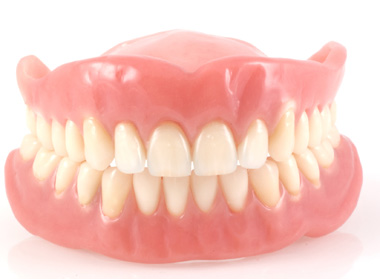Most of my teeth are broken or missing, and I think dentures are the only solution. I’m embarrassed because I’m only 54 years old. I’ve been afraid of the dentist since childhood, and the dentist didn’t help with my fear either. I don’t think he liked having children as patients, although he claimed to be a family dentist.
Although I’ve always brushed my teeth daily, I’ve neglected flossing and dental checkups. It’s been about 3 years since my last dental appointment. Fortunately, I have excellent dental insurance and a good job. I wonder if I should see an oral surgeon to remove the teeth that are left or see a dentist first? What’s the right order? Thanks! Neil
Neil,
It’s good that you’re pursuing good oral health now. Although your dental anxiety has prevented you from going to the dentist, getting dentures will improve your smile and confidence.
An Oral Surgeon or a Dentist for Tooth Extractions Before Dentures?
Pre-denture extractions are not a complicated procedure. Instead of visiting a dentist and an oral surgeon, we recommend that you find a dentist who does extractions and will provide you with high-quality dentures. And knowing that you’ll only need to see one provider can help with your anxiety. But how can you choose a dentist?
- Ask friends or family members—or search online—for an experienced dentist in your area.
- Look at each dentist’s website and look for his or her post-graduate training in dental surgery and cosmetic dentistry. A dentist with training in cosmetic dentistry will ensure your dentures look natural—not like false teeth.
- Call a few dental offices and ask each of them how the dentist handles cases when a patient needs tooth extractions before dentures. If the dentist performs extractions, you might want to add him or her to your list.
- Ask how the dentist handles patients with dental anxiety.
A dentist who performs extractions will provide you with an immediate—or temporary—denture. If you have one provider for surgery and denture, it saves time, travel, and money. And your dentist won’t need to coordinate your care with an oral surgeon. You’ll have a smooth transition from extractions to dentures.
Implant Overdentures

Well-made dentures will look natural
Your dentist can anchor your dentures with dental implants. Implants are artificial tooth roots that look like small screws. The implants will heal and fuse with your jawbone after your dentist inserts the implants through your gums. After three or four months of healing, your dentist will attach your permanent dentures to the implants.
If you’re interested in implant overdentures, find a dentist with advanced training in implantology. The dentist’s advanced training will ensure you have a successful implant procedure. It’s essential to your oral health. If you decide to wait before getting overdentures, your dentist can provide them later.
Sedation Dentistry for Dentures
Dental anxiety has kept you from getting dental cleanings and exams. It can also prevent you from moving forward and getting the care you need. If you find a dentist who offers sedation, ask what levels are available. Depending on the dentist’s training and the complexity of treatment that he or she provides, the following options might be available:
- Nitrous oxide – Also known as laughing gas, you’ll breathe in nitrous oxide throughout your appointment to remain calm.
- Oral conscious sedation – The dentist will give you an anti-anxiety pill to take before your appointment, so you arrive at the office relaxed and ready for treatment.
- IV Sedation – Sedation is administered through an IV. An anesthesiologist often provides IV sedation at a dental office.
If you find a general dentist that you like and trust, but he or she recommends extractions from an oral surgeon, you still need to see the dentist first to coordinate your care.
David Finley, DDS of Monroe, LA sponsors this post.





